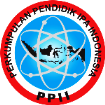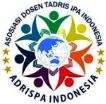Profil Literasi Sains dalam Pembelajaran IPA di Era Covid-19: Studi Kasus di Universitas Terbuka
Abstract
Literacy skills are fundamental things that students must have in facing the industrial era 4.0 to be able to meet the needs of life in various situations. Scientific literacy is the ability to understand science, communicate science, and apply science skills to solve problems. However, the scores of Indonesian students on scientific literacy abilities are still far below the international standard scores set by the OECD institution. Seeing this phenomenon, this study aims to describe the profile of students' scientific literacy abilities. The research method used was a survey method. Informants who were used as research samples were 1210 Open University students. Data on students' scientific literacy abilities were collected through an online questionnaire using Google Form, then analyzed descriptively using the help of the SPSS program version 23.00 for Windows. The findings obtained in this study indicate the importance of scientific literacy skills that have a positive impact on knowledge, understanding and skills in using media, especially social media, which is currently often used as a source of information by audiences, especially students. Seeing the results of this study, the researcher recommended the need for universities or leaders so that students could improve students' scientific literacy skills.
Keywords: ability, science literacy, natural science learning, covid-19 era, students.
ABSTRAK
Kemampuan literasi merupakan hal fundamental yang harus dimiliki oleh mahasiswa dalam menghadapi era industri 4.0 untuk dapat memenuhi kebutuhan hidup dalam berbagai situasi. Literasi sains merupakan kemampuan untuk memahami sains, mengkomunikasikan sains, serta menerapkan kemampuan sains untuk memecahkan masalah. Namun, skor siswa Indonesia pada kemampuan literasi sains masih jauh di bawah skor standar internasional yang ditetapkan oleh lembaga OECD. Melihat fenomena tersebut, penelitian ini bertujuan untuk mendeskripsikan profil kemampuan literasi sains mahasiswa. Metode penelitian digunakan adalah metode survey. Informan yang dijadikan sampel penelitian sebanyak 1210 orang mahasiswa Universitas Terbuka. Data kemampuan literasi sains mahasiswa dikumpulkan melalui kuisioner online menggunakan Google Form, kemudian dianalisis secara deskritif menggunakan bantuan Program SPSS versi 23.00 for Windows. Temuan yang diperoleh pada penelitian ini menunjukan pentingnya kemampuan literasi sains yang memberikan dampak positif bagi pengetahuan, pemahaman dan keterampilan dalam menggunakan media terutama media sosial yang saat ini sering dijadikan sumber informasi oleh khalayak terutama oleh kalangan mahasiswa. Melihat hasil penelitian tersebut, peneliti merekomendasikan perlunya universitas atau pimpinan agar mahasiswa dapat meningkatkan kemampuan literasi sains mahasiswa.
Kata kunci: kemampuan, literasi sains, pembelajaran ipa, era covid-19, mahasiswa.
Full Text:
PDFReferences
A’yuni, Q. Q. (2015). Literasi Digital Remaja di Kota Surabaya. Jurnal Fakultas Ilmu Sosial Dan Ilmu Politik Universitas Airlangga Surabaya, 4(2), 1–15. http://journal.unair.ac.id/literasi-digital-remaja-di-kota-surabaya-article-9195-media-136-category-8.html
Brown, C. (2013). Literacy Boost Indonesia Endline Report (Issue July).
Bybee, R., McCrae, B., & Laurie, R. (2009). PISA 2006: An Assessment of Scientific Literacy. Journal of Research in Science Teaching, 46(8), 865–883. https://doi.org/10.1002/tea.20333
Cahyadi, I. F. (2019). Peranan Sistem Informasi Akuntansi dan Tantangan Profesi Akuntan di Era Revolusi Industri 4.0 (Sebuah Studi Fenomenologi). AKTSAR: Jurnal Akuntansi Syariah, 2(1), 69–82. https://doi.org/10.21043/aktsar.v2i1.5497
Cardwell, V. B. (2005). Literacy: What Level for Food, Land, Natural Resources, and Environment? Journal of Natural Resources and Life Sciences Education, 34(1), 112–117. https://doi.org/10.2134/jnrlse.2005.0112
Cavas, B., Cavas, P., Ozdem, Y., Rannikmae, M., & Ertepinar, H. (2012). Research Trends in Science Education from the Education from the Perspective of Journal of Baltic Science Education: A Content Analysis from 2002 to 2011. Journal of Baltic Science Education, 11(1), 94–103.
Creswell, J. W. (2012). Educational Research: Planning, Conducting Abd Evakuating Quantitative dan Qualitative Research (4th ed.). Pearson Education, Inc.
Griffin, P., & Care, E. (2015). Assessment and Teaching of 21st Century Skills. In Springer Dordrecht Heidelberg. Springer. https://doi.org/10.1007/978-94-017-9395-7_15
Holbrook, J., & Rannikmae, M. (2009). The Meaning of Scientific Literacy. International Journal of Environmental & Science Education, 4(3), 275–288. https://doi.org/10.1097/00006199-195402000-00010
Hurd, P. D. (1958). Science Literacy: Its Meaning for American Schools. Educational Leadership, 16(1), 13–16.
Katerina Ananiadou, M. C. (2009). 21st Century Skills and Competences for New Millennium Learners in OECD Countries. OECD Publishing.
Laugksch, R. C. (2000). Scientific literacy: A conceptual overview. Science Education, 84(1), 71–94. https://doi.org/10.1002/(SICI)1098-237X(200001)84:1<71::AID-SCE6>3.0.CO;2-C
Liu, X. (2009). Beyond science literacy: Science and the public. International Journal of Environmental and Science Education, 4(3), 301–311.
Narut, Y. F., & Supradi, K. (2019). Literasi Sains Peserta Didik Dalam Pembelajaran IPA di Indonesia. Jurnal Inovasi Pendidikan Dasar, 3(1), 61–69.
National Research Council. (1996). National Science Education Standards. National Academy Press.
NCREL, M. G. (2003). enGauge 21st Century Skills: Digital Literacy for Digital Age. Carol I" National Defence University.
Nejla Gultepe, Z. K. (2015). Effect of Scientific Argumentation on the Development of Scientific Process Skills in the Context of Teaching Chemistry. International Journal of Environmental and Science Education, 10(1), 111–132. https://doi.org/10.12973/ijese.2015.234a
Norris, S. P., & Phillips, L. M. (2003). How Literacy in Its Fundamental Sense Is Central to Scientific Literacy. Science Education, 87(2), 224–240. https://doi.org/10.1002/sce.10066
OCDE. (2009). PISA 2009 Assessment Framework. Key Competencies in Reading, Mathematics and Science. In Assessment (Vol. 20, Issue 8). https://doi.org/10.1787/9789264062658-en
OECD. (2013). PISA 2012 Assessment and Analytical Framework: Mathematics, Reading, Science, Problem Solving and Financial Literacy. OECD Publishing. https://doi.org/http://dx.doi.org/10.1787/97892641 90511-en
OECD. (2016). Country Note – Results from PISA 2015: Indonesia. In OECD. https://www.oecd.org/pisa/PISA-2015-Indonesia.pdf
A’yuni, Q. Q. (2015). Literasi Digital Remaja di Kota Surabaya. Jurnal Fakultas Ilmu Sosial Dan Ilmu Politik Universitas Airlangga Surabaya, 4(2), 1–15. http://journal.unair.ac.id/literasi-digital-remaja-di-kota-surabaya-article-9195-media-136-category-8.html
Brown, C. (2013). Literacy Boost Indonesia Endline Report (Issue July).
Bybee, R., McCrae, B., & Laurie, R. (2009). PISA 2006: An Assessment of Scientific Literacy. Journal of Research in Science Teaching, 46(8), 865–883. https://doi.org/10.1002/tea.20333
Cahyadi, I. F. (2019). Peranan Sistem Informasi Akuntansi dan Tantangan Profesi Akuntan di Era Revolusi Industri 4.0 (Sebuah Studi Fenomenologi). AKTSAR: Jurnal Akuntansi Syariah, 2(1), 69–82. https://doi.org/10.21043/aktsar.v2i1.5497
Cardwell, V. B. (2005). Literacy: What Level for Food, Land, Natural Resources, and Environment? Journal of Natural Resources and Life Sciences Education, 34(1), 112–117. https://doi.org/10.2134/jnrlse.2005.0112
Cavas, B., Cavas, P., Ozdem, Y., Rannikmae, M., & Ertepinar, H. (2012). Research Trends in Science Education from the Education from the Perspective of Journal of Baltic Science Education: A Content Analysis from 2002 to 2011. Journal of Baltic Science Education, 11(1), 94–103.
Creswell, J. W. (2012). Educational Research: Planning, Conducting Abd Evakuating Quantitative dan Qualitative Research (4th ed.). Pearson Education, Inc.
Griffin, P., & Care, E. (2015). Assessment and Teaching of 21st Century Skills. In Springer Dordrecht Heidelberg. Springer. https://doi.org/10.1007/978-94-017-9395-7_15
Holbrook, J., & Rannikmae, M. (2009). The Meaning of Scientific Literacy. International Journal of Environmental & Science Education, 4(3), 275–288. https://doi.org/10.1097/00006199-195402000-00010
Hurd, P. D. (1958). Science Literacy: Its Meaning for American Schools. Educational Leadership, 16(1), 13–16.
Katerina Ananiadou, M. C. (2009). 21st Century Skills and Competences for New Millennium Learners in OECD Countries. OECD Publishing.
Laugksch, R. C. (2000). Scientific literacy: A conceptual overview. Science Education, 84(1), 71–94. https://doi.org/10.1002/(SICI)1098-237X(200001)84:1<71::AID-SCE6>3.0.CO;2-C
Liu, X. (2009). Beyond science literacy: Science and the public. International Journal of Environmental and Science Education, 4(3), 301–311.
Narut, Y. F., & Supradi, K. (2019). Literasi Sains Peserta Didik Dalam Pembelajaran IPA di Indonesia. Jurnal Inovasi Pendidikan Dasar, 3(1), 61–69.
National Research Council. (1996). National Science Education Standards. National Academy Press.
NCREL, M. G. (2003). enGauge 21st Century Skills: Digital Literacy for Digital Age. Carol I" National Defence University.
Nejla Gultepe, Z. K. (2015). Effect of Scientific Argumentation on the Development of Scientific Process Skills in the Context of Teaching Chemistry. International Journal of Environmental and Science Education, 10(1), 111–132. https://doi.org/10.12973/ijese.2015.234a
Norris, S. P., & Phillips, L. M. (2003). How Literacy in Its Fundamental Sense Is Central to Scientific Literacy. Science Education, 87(2), 224–240. https://doi.org/10.1002/sce.10066
OCDE. (2009). PISA 2009 Assessment Framework. Key Competencies in Reading, Mathematics and Science. In Assessment (Vol. 20, Issue 8). https://doi.org/10.1787/9789264062658-en
OECD. (2013). PISA 2012 Assessment and Analytical Framework: Mathematics, Reading, Science, Problem Solving and Financial Literacy. OECD Publishing. https://doi.org/http://dx.doi.org/10.1787/97892641 90511-en
OECD. (2016). Country Note – Results from PISA 2015: Indonesia. In OECD. https://www.oecd.org/pisa/PISA-2015-Indonesia.pdf
Pratama, W. A., Hartini, S., & Misbah. (2019). Analisis Literasi Digital Siswa Melalui Penerapan E-Learning Berbasis Schology. Jurnal Inovasi Dan Pembelajaran Fisika, 6(1), 9–13.
Pratiwi, I. (2019). Efek Program Pisa terhadap Kurikulum di Indonesia. Jurnal Pendidikan Dan Kebudayaan, 4(1), 51–71. https://doi.org/10.24832/jpnk.v4i1.1157
Puspitoningrum, E. (2019). Implementasi Literasi Untuk Meningkatkan Motivasi Pembelajaran Pada Materi Membaca Aksara Jawa Siswa SMA. Journal of Chemical Information and Modeling, 53(9), 1689–1699. https://doi.org/10.1017/CBO9781107415324.004
Rahmania, S., Miarsyah, M., & Sartono, N. (2015). Perbedaan Kemampuan Literasi Sains Siswa dengan Gaya Kognitif Field Independent dan Field Dependent. Biosfer, 8(2), 27–34. https://doi.org/ISSN 0853-2451
Ristanto, R. H., Zubaidah, S., Amin, M., & Rohman, F. (2017). Scientific Literacy of Students Learned Through Guided Inquiry. International Journal of Research & Review, 234(5), 23–30. https://www.ijrrjournal.com/IJRR_Vol.4_Issue.5_May2017/IJRR004.pdf
Rubini, B., Ardianto, D., Pursitasari, I. D., & Permana, I. (2016). Identify Scientific Literacy from The Science Teachers’ Perspective. Jurnal Pendidikan IPA Indonesia, 5(2), 299–303. https://doi.org/10.15294/jpii.v5i2.7689
Setijadi, E. . (2004). Universitas Terbuka, Dulu, Kini, dan Esok 20 Tahun. Universitas Terbuka.
Setyaningsih, R., Abdullah, Prihantoro, E., & Hustinawaty. (2019). Model Penguatan Literasi Digital Melalui Pemanfaatan E-Learning. Jurnal ASPIKOM, 3(6), 1200–1214. https://doi.org/10.24329/aspikom.v3i6.333
Vieira, R. M., & Tenreiro-Vieira, C. (2016). Fostering Scientific Literacy and Critical Thinking in Elementary Science Education. International Journal of Science and Mathematics Education, 14(4), 659–680. https://doi.org/10.1007/s10763-014-9605-2
Warsito, Bimatara, M., & Djuniadi, D. (2016). Pengembangan E-Learning Berbasis Schoology pada Mata Pelajaran Matematika Kelas VII. Jurnal Pendidikan Matematika FKIP Unissula, 4(1), 91–99.
Wulandari, S. (2018). Analisis Kemampuan Literasi Sains Pada Aspek Pengetahuan dan Kompetensi Sains Siswa SMP Pada Materi Kalor. Edusains, 8(1), 66–73.
DOI: http://dx.doi.org/10.24014/jnsi.v4i1.11662
Refbacks
- There are currently no refbacks.

Journal of Natural Science and Integration
E-ISSN: 2620-5092 P-ISSN: 2620-4967
Published By:
Department of Science Education, Faculty of Education and Teacher Training,
State Islamic University of Sultan Syarif Kasim Riau, Indonesia
Mailing Address:
Jl. H.R Soebrantas Km. 15 No. 155
Kelurahan Simpang Baru
Kecamatan Tuah Madani, Pekanbaru, Riau, Indonesia
Email: jnsi.tadrisipa@uin-suska.ac.id
Indexed By:
Journal of Natural Science and Integration is licensed under a Creative Commons Attribution 4.0 International License.


_-_Copyy2.png)






.jpg)
.png)
.jpg)
.jpg)




